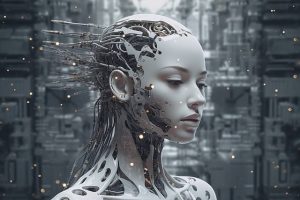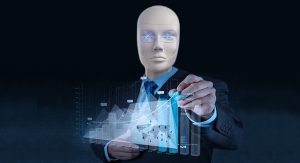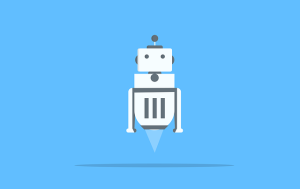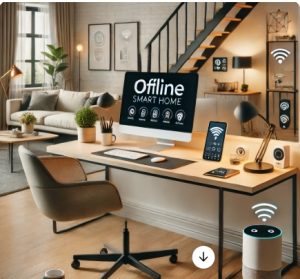A mysterious entity is taking over the world of employment: Artificial Intelligence. From chatbots and digital assistants to smart bots and robotic process automation, technology is changing the way companies work. What is the difference between Artificial Intelligence vs Human Intelligence?
But what about the role of the machines themselves? As AI continues to progress, there’s a rising concern that these digital humans may start taking over traditional jobs. Should companies be hiring AI workers over human counterparts? The answer, as with most things in the tech world, is dependent on a number of factors.
Let’s delve deeper into the world of AI hiring and what it means for the future of work.

Artificial intelligence hiring – it’s a concept that has been buzzing around the tech world for some time now. Is it the future of recruitment? Should companies be relying on AI to hire their employees? It’s a debate that has been raging on for a while, with proponents arguing that AI can save time, money and eliminate human biases in the recruitment process.
However, there are others who question the ability of AI to truly replicate the nuanced decision making capabilities of a human being. After all, while AI can be programmed to make decisions based on data, it lacks the empathetic skills that are essential to understanding human behavior.
Additionally, a machine learning algorithm is only as good as the data it is fed with. This means that if the data is biased, the AI’s decisions will be as well.
In a world where we are continually striving towards greater inclusivity and diversity, relying on AI to make hiring decisions may be a step in the wrong direction. While AI has its benefits, it is important to remember that human intelligence is irreplaceable when it comes to decision-making in complex, interpersonal scenarios.
Companies need to rethink their reliance on AI when it comes to recruitment and focus instead on creating diverse and inclusive hiring processes that rely on human intuition, empathy and judgement.
The Advantages of Artificial Intelligence
Artificial intelligence is often viewed as the future of business operations. Companies invest millions in AI solutions to automate repetitive tasks and optimize their processes due to its benefits of increased speed, accuracy, and efficiency.

AI programs work tirelessly without errors or breaks. There are bots, humanoids, robots, and computerized robot people that basically, from an efficiency standpoint outsmart every human being on the planet. These AI-driven applications have a higher speed of execution, have higher operational capacity and exactness, while likewise profoundly huge in dreary and monotonous positions compared with humans.
However, it’s essential not to overlook the vital role of human intelligence in business. AI technology is very quickly evolving and it is encouraging human beings to become more productive. One thing is for sure, AI cannot replace the critical thinking, problem-solving skills, and emotional intelligence that humans bring. So, companies need to balance leveraging AI’s benefits while preserving the unique contributions of human workers.
The Limitations of Current AI Technology
Can artificial intelligence replace human intelligence? Is Artificial intelligence sufficient in itself? Artificial intelligence (AI) is becoming increasingly popular among companies looking to automate tasks and boost efficiency. However, while AI can perform repetitive tasks accurately and quickly, it lacks the nuanced decision-making capabilities of human intelligence.
This means that it may not always be the best solution for complex business problems that require creative thinking and empathy. Moreover, since AI’s effectiveness is dependent on its training data, it can make biased and inaccurate decisions.
AI systems currently lack the ability to apply common sense reasoning to new situations. They are only able to make predictions and decisions based on the data they have been trained on, meaning they are not able to apply their knowledge in a flexible way to new situations. This lack of common sense can make AI systems prone to errors, particularly when dealing with novel situations.

Despite the recent debate surrounding AI in the world of art, the author is of the opinion, that an AI is not able to come up with something completely like a novel, like a human artist creating a new painting, or a human scientist discovering a new theory. Although, having said that, it could be argued that nothing anyone creates is truly new since we are influenced by everything around us and everything that has come before us. The truth is, that whatever art an AI creates, there is always human influence upon that artwork.
Companies must evaluate the risks and benefits of hiring AI workers to ensure that their investment is worthwhile. To fully maximize potential and pursue innovation, businesses need to strike a balance between humans and AI.
So, is hiring AI for business the answer? There’s no clear-cut answer to this complex and nuanced question.
The Benefits of Human Intelligence in the Workplace
AI is advancing rapidly, leading companies to consider whether they should replace humans with machines.
Businesses that are using artificial intelligence to improve the productivity of their employees. One of the benefits of AI in the workplace, is that it handles repetitive tasks across an organization so that employees can focus on creative solutions, complex problem-solving, and impactful work.
While AI can complete repetitive tasks efficiently, there are unique advantages to human intelligence. Combining humans with AI can lead to greater success. Humans possess empathy, complex decision-making skills, and creativity that cannot be taught to a machine.
Emotional intelligence is also crucial to corporate success and is a strength of human intelligence. Before making decisions about who to hire, companies should weigh the benefits of AI alongside those of human intelligence.
The Value of a Balanced Approach to Staffing
The AI vs. human intelligence debate has been ongoing in the business world for years.
While some argue that artificial intelligence is the way of the future, others believe that nothing can replace the human touch. But what if a balanced approach to staffing is the key to a successful business? By taking into account the strengths of both AI and human workers, companies could achieve the best of both worlds.
AI can be incredibly efficient and cost-effective, analyzing vast amounts of data in seconds without making mistakes. However, AI lacks creativity, intuition, and the ability to understand nuance and context.

Human workers can provide the personal touch, empathy, and customer service that AI cannot match, But the real value comes when these two types of intelligence are combined.
AI can handle repetitive and time-consuming tasks while humans provide unique skills like critical thinking, emotional intelligence, and problem-solving abilities. Working together, AI and humans can create a dynamic workforce that is truly unstoppable.
It’s time for companies to rethink their approach to hiring and find ways to bring AI and human intelligence together. By doing so, they can harness the full power of technology and humanity, creating a workforce that achieves the best results.
What is the Solution?
As we delve deeper into a future that is increasingly driven by AI and digital humans, one cannot help but ponder upon the ethical and practical implications of employing machines in our workforce. While the prospect of increased efficiency and productivity may seem alluring, it also raises questions about the future of employment, job security, and the social responsibility of companies towards their workforce and society at large.
Yes, AI has the potential to revolutionize the way we work, but it also has the power to dehumanize it. In the end, the decision lies not just with the companies but with all of us, to ensure that we strike a balance between technological advancement and human welfare.
For we cannot forget that the true value of technology lies in its ability to augment our capabilities, not replace them. So, should companies hire AI workers? The answer lies not in a simple yes or no, but in a complex landscape of ethical, social, and economic considerations that we must navigate together.






